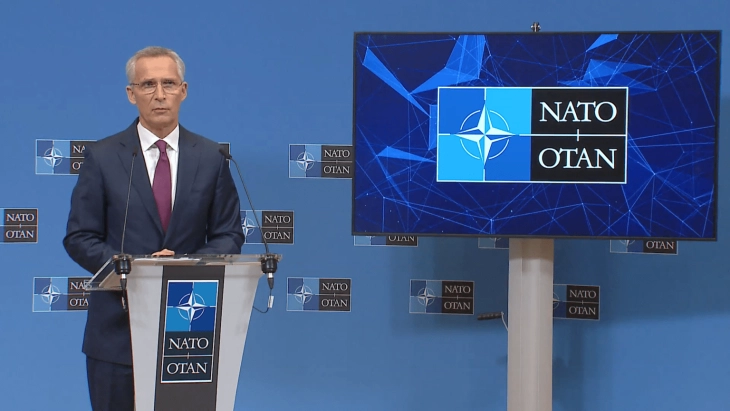NATO plans for nuclear worst-case scenario in Ukraine

Brussels, 13 October 2022 (dpa/MIA) - NATO defence ministers discussed on Thursday how to prepare for a potential Russian nuclear attack against Ukraine and maximise the alliance’s nuclear deterrent.
"NATO's nuclear deterrence preserves peace, prevents coercion and deters aggression," NATO Secretary General Jens Stoltenberg said after the gathering in Brussels.
Russian President Vladimir Putin's "nuclear rhetoric is dangerous and irresponsible," he said.
Ministers of 29 of the 30 alliance’s member states took part in a classified meeting of the so-called Nuclear Planning Group on Thursday to assess the latest developments and threats by Putin.
France, currently the only nuclear power in the EU, abstained from the consultations as usual since it relies on the principle of "nuclear independence."
"Any use of nuclear weapons would fundamentally change the nature of the conflict and have severe consequences," Stoltenberg said without providing details on NATO's potential response.
"We take these threats seriously and we remain vigilant. We will not be intimidated," Stoltenberg said.
German Defence Minister Christine Lambrecht struck a similar tone earlier on Thursday, warning against downplaying Russia's threats.
Lambrecht asked for understanding that these deliberations are taking place in "internal, secret committees."
"But I can say we are prepared," she added.
The secrecy about possible NATO reactions to Russian use of nuclear weapons is seen as part of the alliance's deterrence strategy.
For the Kremlin, the risk should be kept incalculable, although much may ultimately depend on what exactly Russia would do.
In the event of a Russian nuclear attack on major cities like Kiev, NATO could get directly involved in trying to eliminate Russian forces in Ukraine if all allies agree.
Another possible response could be a large-scale cyber attack on Russian critical infrastructure, which would also be conceivable if Russia were to use smaller tactical nuclear weapons against the Ukrainian army.
Stoltenberg said again on Thursday that NATO’s annual nuclear training exercise 'Steadfast Noon' is to start next week.
"Russia knows that a nuclear war cannot be won and must never be fought," Stoltenberg said.
Another part of NATO’s increased deterrence and defence efforts is a project launched on Thursday by Germany and 14 partner countries to build a better European air defence system.
Lambrecht signed a letter of intent with her counterparts to start the European Sky Shield Initiative (ESSI) on the sidelines of the Brussels meeting.
The project aims to help close existing gaps in Europe’s air defence, for example, in defending against ballistic missiles that reach great heights, drones and cruise missiles.
Next to nuclear deterrence, NATO ministers also discussed their support for Ukraine at the Brussels gathering.
Stoltenberg urged allies to continue supplying Ukraine with weapons at a press conference after the meeting.
NATO itself is providing fuel, winter clothing, and medical supplies, and will soon start delivering "counter-drone equipment to Ukraine with hundreds of drone jammers," Stoltenberg said.
These devices are to "help render ineffective Russian and Iranian-made drones, and to protect Ukrainian people and critical infrastructure."
NATO countries also decided on Thursday to increase stockpiles of ammunition and equipment, Stoltenberg said.







